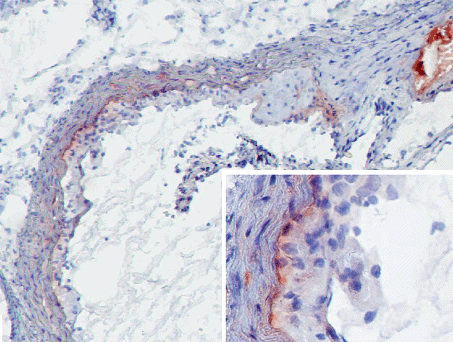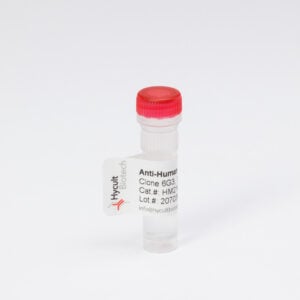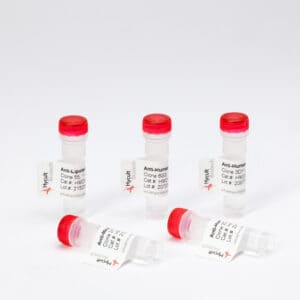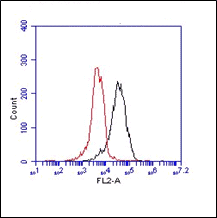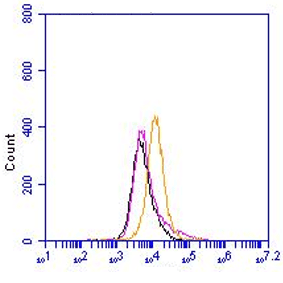MBL-A, Mouse, mAb 8G6
€133.00 – €510.00
Mannose Binding Lectin (MBL), also called mannosebinding protein (MBP), is a calcium dependent oligomeric protein that belongs to the collectin family of proteins. It contains a collagen-like domain and a carbohydrate recognition domain enabling MBL to recognize carbohydrates (such as mannose and N-acetylglucosamine) on pathogens. MBL is able to activate the complement pathway independent of the classical and alternative complement activation pathways, by using attached mannose binding lectin-associated serine proteases (MASP-2) in an antibody- and C1q-independent manner. MASP-2 permits cleavage of C4 and C2 to form a C3 convertase. Once it has bound, MBL exhibits complement-dependent antibacterial activities such as microbial opsonization and/or microbial lysis via membrane attack complexes and therefore plays an important role in innate immunity.
In human, MBL is encoded by a single gene, whereas in mice there are two homologous proteins, termed MBL-A and MBL-C. The MBL-A concentration in serum is about 6-fold lower compared to that of MBL-C… MBL-A, but not MBL-C, was found to be an acute phase protein in casein and LPS-injection models. Moreover, it has been shown that MBL-A deficient mice have aberrant antigen-specific IgM responses and- suffer from increased susceptibility to infection . Note that the monoclonal antibody 8G6 is a calcium-dependent antibody.
